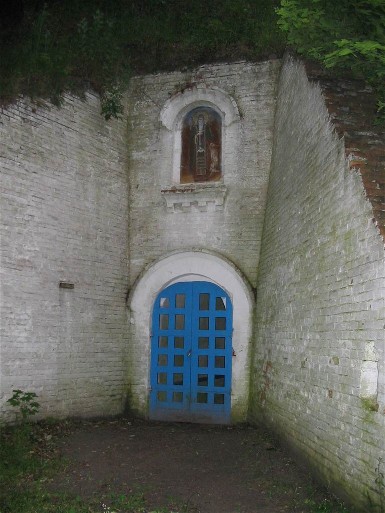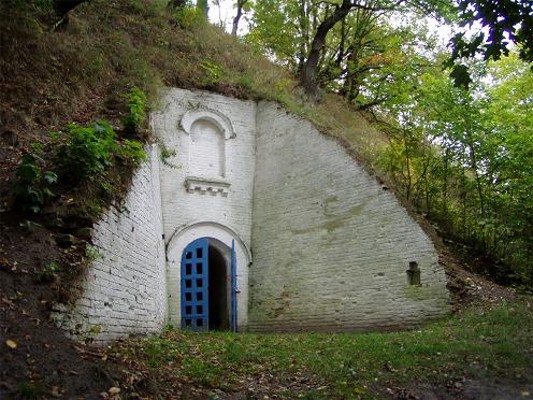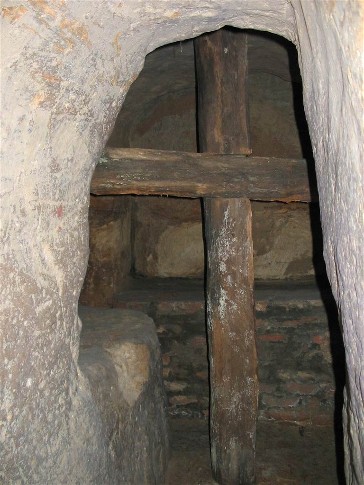Saint Anthony of the Caves
Saint Anthony of the Caves (Святий Антоній Печерський; Sviatyi Antonii Pecherskyi; secular name: Antyp), b ca 983 in Liubech, Chernihiv region, d 1073 in Kyiv. As a youth he joined the monastery at Mount Athos, where he was tonsured and adopted the religious name Anthony. After many years he returned to Ukraine; reputedly he took up residence in a cave in which Metropolitan Ilarion had lived, near the village of Berestove, on the outskirts of Kyiv. Anthony's deeds and fasting attracted other monks, including Saint Theodosius of the Caves. This monastic community became the nucleus of the Kyivan Cave Monastery, and Anthony emerged as the founder of monasticism in Ukraine. Later, Anthony and the monks built a church and elected the first hegumen, Varlaam. When the monastic community expanded, Anthony, an adherent of hermitism and a strict ascetic, excavated for himself a new cave in an area that came to be called the Near Caves or Anthony's Caves, to distinguish them from the older caves, called the Far Caves or Theodosius's Caves. There he would cure the sick with herbs and reputedly perform miracles. Toward the end of his life Anthony was forced by Prince Iziaslav Yaroslavych to leave Kyiv briefly and settle in Chernihiv, but he soon returned to Kyiv. The cult of Saint Anthony grew in the late 12th and early 13th centuries, and it was probably around this time that he was canonized; his feast is celebrated on 23 July (10 July OS). His life, based on an older life which has not survived, is found in the Kyivan Cave Patericon.
BIBLIOGRAPHY
Heppell, M. ‘The Vita Antonii, a Lost Source of the Paterikon of the Monastery of Caves,’ Byzantinoslavica 13, no. 1 (1952)
Dublians’kyi, A. Ukraïns’ki sviati (Munich 1962)
Bosley, R. ‘A History of the Veneration of SS Theodosij and Antonij of the Kyivan Caves Monastery from the Eleventh to the Fifteenth Century,’ PH D diss, Yale University, 1980
A. Zhukovsky
[This article originally appeared in the Encyclopedia of Ukraine, vol. 4 (1993).]
.jpg)
.jpg)


.jpg)
